
Home » Carve » Tools » Jade & Gemstone Tools » Drilling Holes Into or Through Jade
When drilling holes into or through jade, both sintered and plated core drills will do the job nicely.
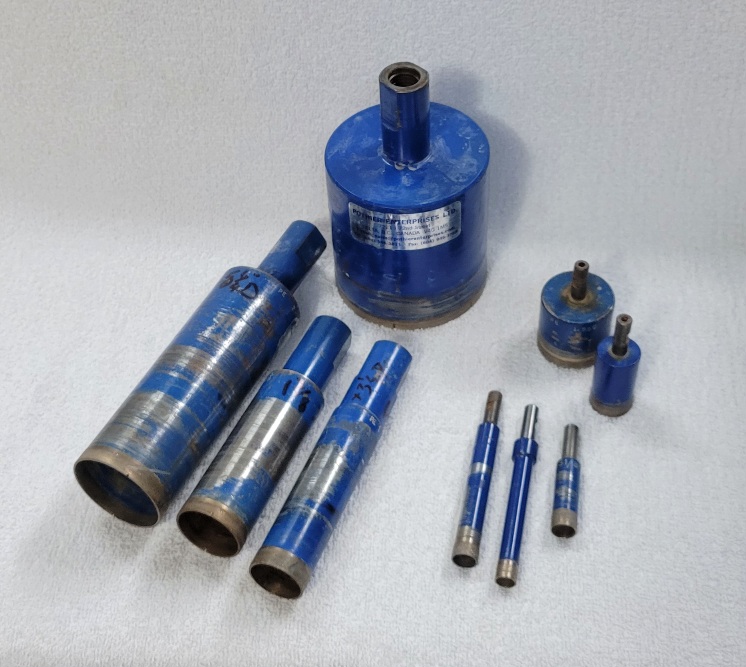

Plated diamond core drills are less expensive but and have a shorter life.
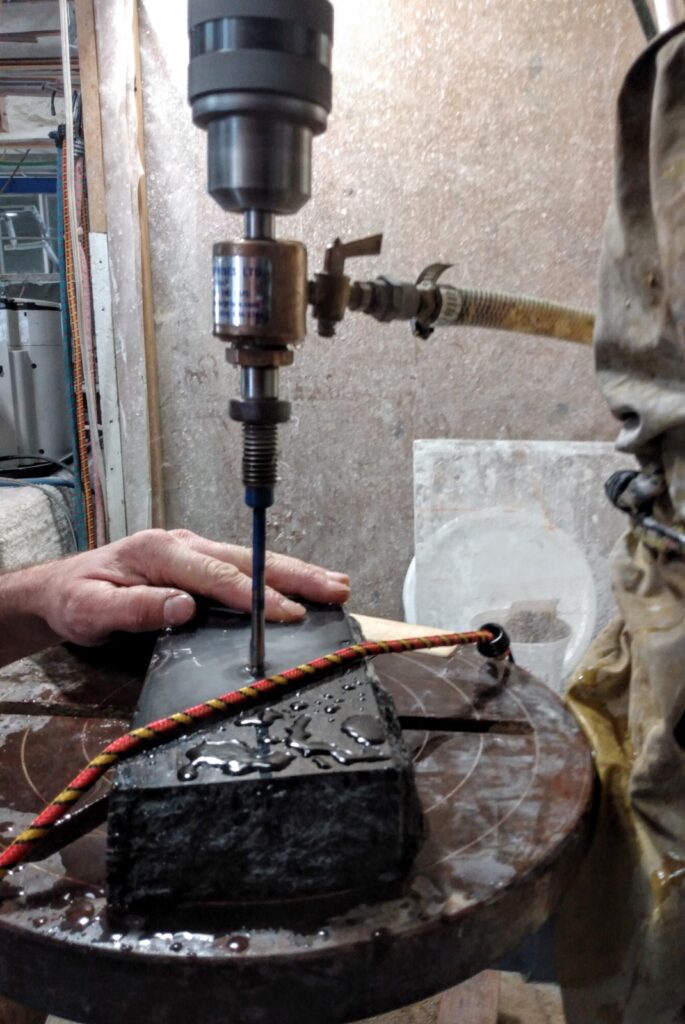

They are inserted directly into the Jacobs chuck of the drill press. Water must somehow be directed onto the stone and core drill while cutting so the water can cool the diamonds as they cut. Using an up and down motion of the core drill allows the water to cool the core drill and the stone.
Sintered diamond core drills with the system I use, (Pothier Enterprises – blue colored ones in the photo) are attached to the water swivel which is driven by the drill press. The small sizes, both in diameter and length, slip into the end of the water swivel and are secured with an allen head set screw. The larger diameter core drills screw onto the 5/8-11 threaded end of the water swivel.

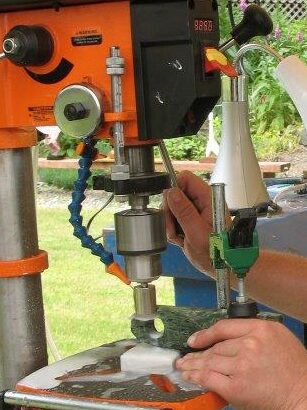
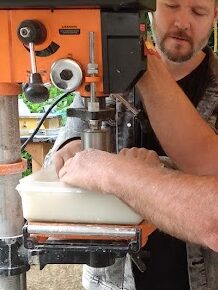
There should be a slab of stone underneath the jade so the diamond drill, be it plated or sintered, cores
into it once it passes through the jade reducing, or eliminating, the potential for chipping or breaking the edge of the hole.
Clamping jade for drilling is important, sometimes one can handhold a small
piece.
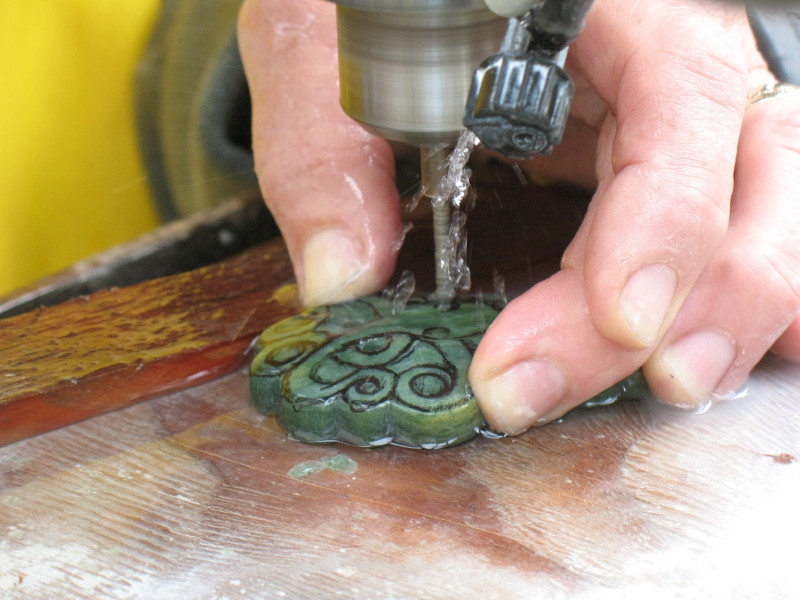
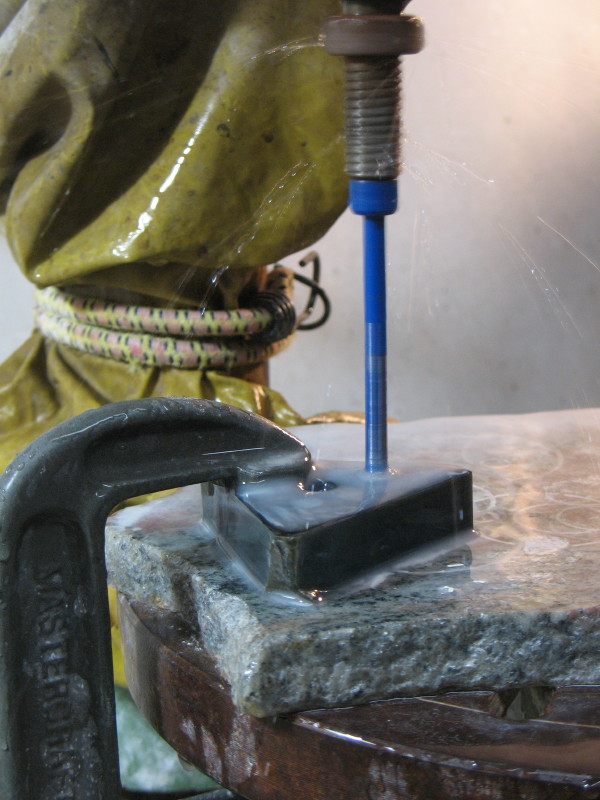
Holding a piece while drilling through at the drill press is always a bit risky. Ideally the jade should be held in place with a clamp, but delicate pieces can break under pressure With this in mind, one can be very careful when holding the piece with one hand and drilling with the other.
Another option is to glue the stone onto a granite or marble tile, using only a minimal amount of mixed epoxy. The tile is then clamped onto the drill press table instead of the stone. As soon as the holes are drilled, then being very carful plunge the tile with drilled stone into a tub of very hot 212F /100C water to soften the epoxy. A flexible putty knife can assist in gently lifting the stone around the edges, again very carefully, especially for slabs that are under 1/4″ thick. There are other ways are to soften the epoxy, like isopropyl alcohol, acetone, or lacquer thinner, but try the hot water first.

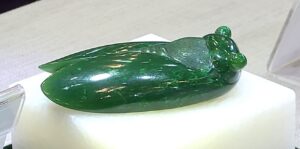

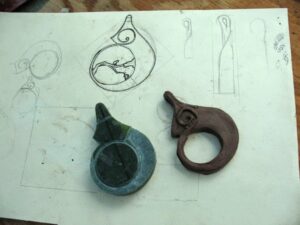
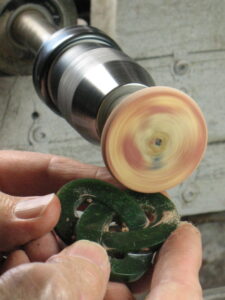
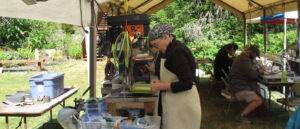

We need some kind of descriptive text here.